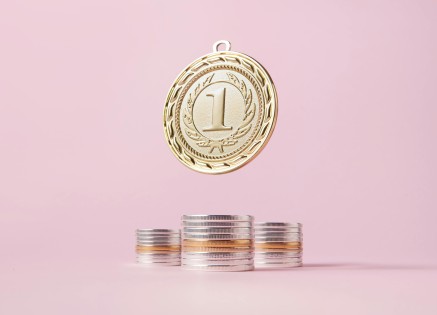Copyright © 2026 lpcentre.com All Rights Reserved. London Premier Centre For Training Ltd Registered in England and Wales, Company Number: 13694538
version: 3.0.1

Posted On: 10/15/2025, 8:51:57 PM
Last Update: 10/15/2025, 8:51:57 PM
The 2025 Nobel Prize in Economics was awarded on Monday to Joel Mokyr, Phillippe Aghion, and Peter Howitt for their research on how innovation and the forces of “creative destruction” may boost global economic growth and raise living standards.
Their study clarifies how technological advancements lead to the development of new goods and production techniques that supplant outdated ones, improving people's quality of life, health, and standard of living.
The Royal Swedish Academy of Sciences awarded the Nobel Prize to laureates who demonstrated that economic stagnation is not the norm and that we must be aware of and counteract threats to continued growth.
The prize winners emphasised the challenges posed by Trump's trade policies and his administration's higher education reforms, which some argue are an attack on academic freedom.
Economists often view economic growth as a key factor in promoting prosperity, but some argue that it is not an unjust good.
Remarkably, Daron Acemoglu, Simon Johnson, and James Robinson won the 2024 Economics prize for their work on inequality, highlighting how technological innovation benefits powerful elites.
The debate on sustainable growth levels is intensified due to the impact of human activities on climate change and environmental degradation.
Moreover, the Sveriges Riksbank Prize in Economic Sciences in Memory of Alfred Nobel, worth 11 million Swedish crowns ($1.2 million), is the final prize of this year.
Mokyr, a professor at Northwestern University in the United States, was awarded half of the prize.
Israeli-American Mokyr, who was awake early to witness the return of Israeli hostages from Gaza, revealed that he had forgotten about the Nobel Prize.
Besides, research examines why the U.S. is richer and lives better than its great-great-grandfathers, expressing concern about losing its scientific research and education leadership under Trump.
The current administration's attack on higher education and scientific research may be the biggest self-goal in history, possibly the biggest since China's Ming Dynasty prohibited scientific research and exploration.
The Trump administration claims the US is the world's largest funder of scientific research, aiming to reduce waste and foster innovation. Aghion, a professor at various institutions, and Howitt, a professor at Brown University, shared the other half of the prize.

The award signals a potential global economic shift due to artificial intelligence, but also raises strategic risks for Europe in falling behind the US and China in future technology advancements.
Aghion argues that de-globalisation and tariff barriers hinder growth, as larger markets offer more opportunities for innovation and competition, but dark clouds are accumulating to push for trade barriers.
Furthermore, Aghion calls on Europe to take a cue from the U.S. and China's successful integration of industrial policy and competitiveness in fields such as biotech, AI, military, and climate.
Howitt, stunned by the award, criticised President Trump's trade policies, stating they discourage innovation by reducing the scale effect and reducing market size for everyone, stating he was stunned by the situation.
He argued that restoring manufacturing jobs in the U.S. is not a good economic policy, suggesting that leaving others to produce running shoes is better.
Last week, the Nobel awards for literature, physics, chemistry, medicine, and peace were revealed.
In 1969, the Economics prize was first given out.
Read more news: